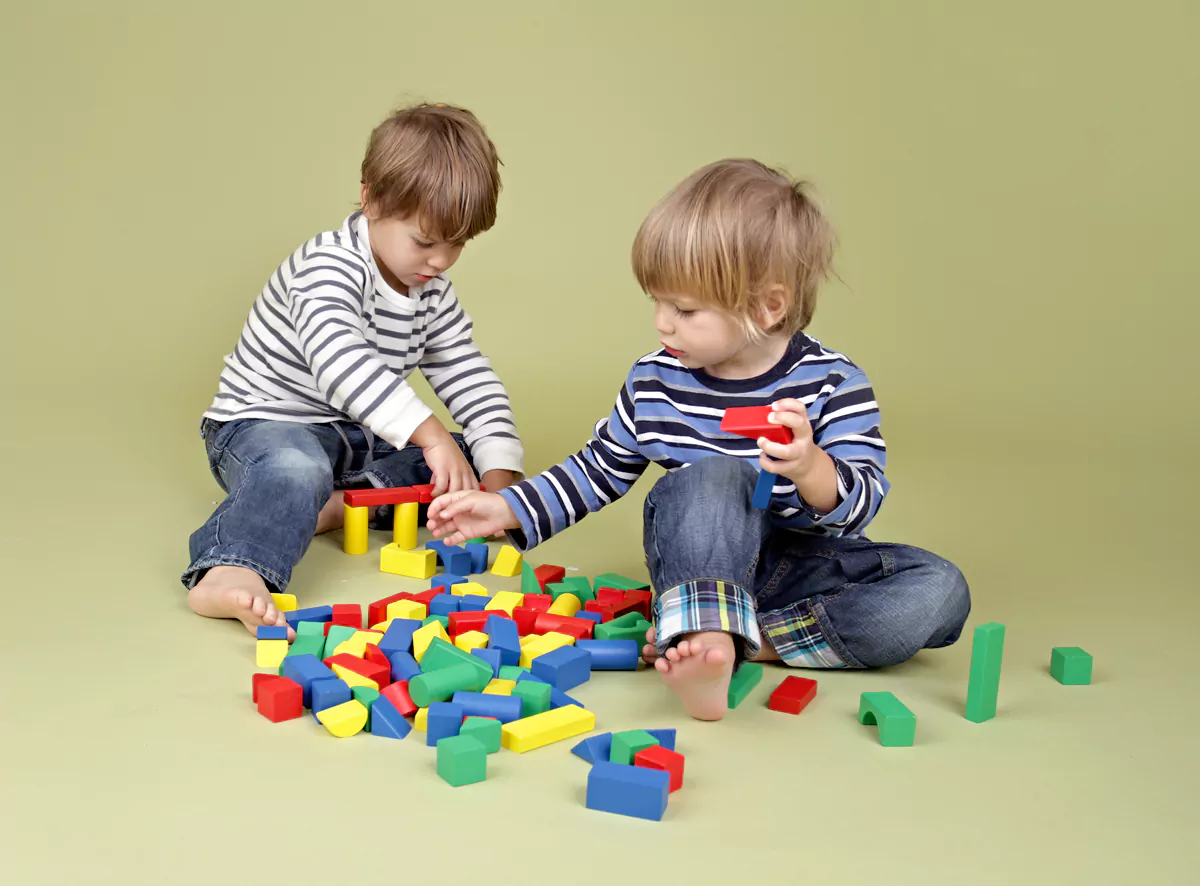9 Important Social Skills For Toddlers and How To Teach Them
A strong foundation for social skills for toddlers is crucial for their development and success in life. Hence a focus on helping your child develop socially will be very helpful and will be just as important as physical or intellectual development.
Having good social skills come in handy as these can help your child build positive relationships with others, communicate effectively, and navigate social situations with confidence. Moreover, your child will be better equipped to handle conflict, solve problems, and collaborate with other children of the same age.
It’s important to teach your child how to manage and express her emotions in a healthy way, listen actively, show empathy, and respect others’ boundaries. It’s also essential to teach her how to handle rejection, criticism, and conflicts in a constructive manner.
Social skills for toddlers are a critical component of a child’s overall development, and parents can play a vital role in helping their child learn and practice these skills. With patience and guidance, your child can develop strong social skills that will benefit her throughout her life.
But, what are social skills?
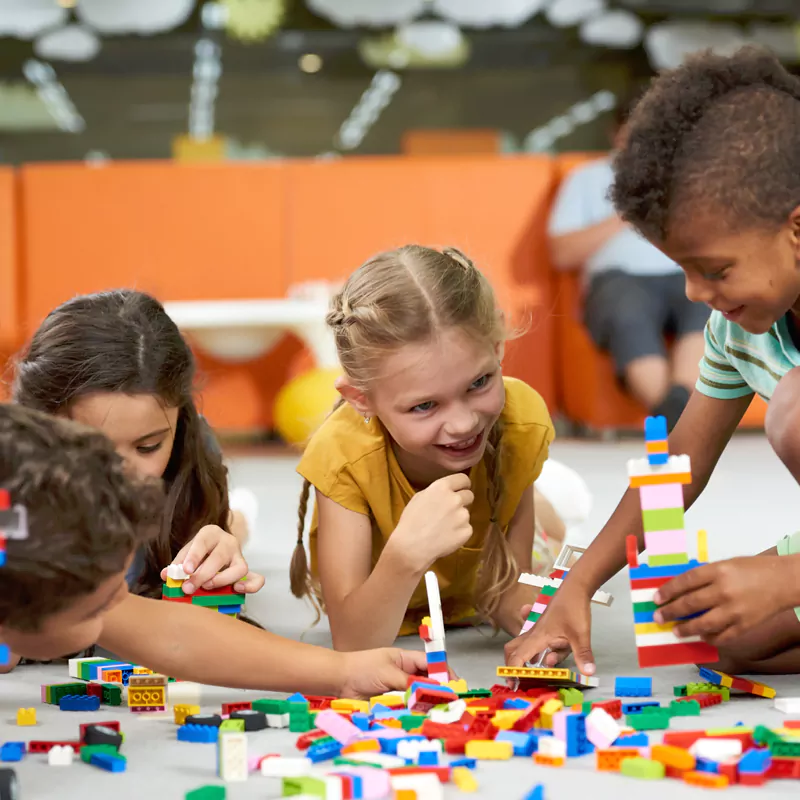
Social skills are a set of abilities that enables a child to communicate and interact effectively with others in a social setting. These skills include a wide range of behaviours, such as:
Verbal communication:
Speaking clearly, listening actively, and using appropriate tone and language.
Non-verbal communication:
Understanding and interpreting body language, facial expressions, and other nonverbal cues.
Greater empathy:
The ability to understand and share the feelings of others.
Cooperation:
Working collaboratively with others towards a common goal.
Conflict resolution:
Managing and resolving conflicts in a peaceful and productive manner.
Self-awareness:
Understanding one’s own emotions and how they may impact others.
Showing respect:
Consideration for others and their feelings, beliefs, and values.
Assertiveness:
Expressing oneself confidently and respectfully, while also respecting the rights and needs of others.
Flexibility:
Adapting to changes in social situations and being open to different perspectives and ideas.
Reduced stress:
Having good social skills can help a child cope with stress more effectively. When a child feels connected to others and has a strong support network, she will be better equipped to deal with challenging situations.
Strong social skills in a child are essential for building and maintaining relationships, developing a sense of belonging, and succeeding in many aspects of life, including school, work, and personal relationships.
Here are some of the most essential social skills you could teach your child at home.
Promote the willingness to share
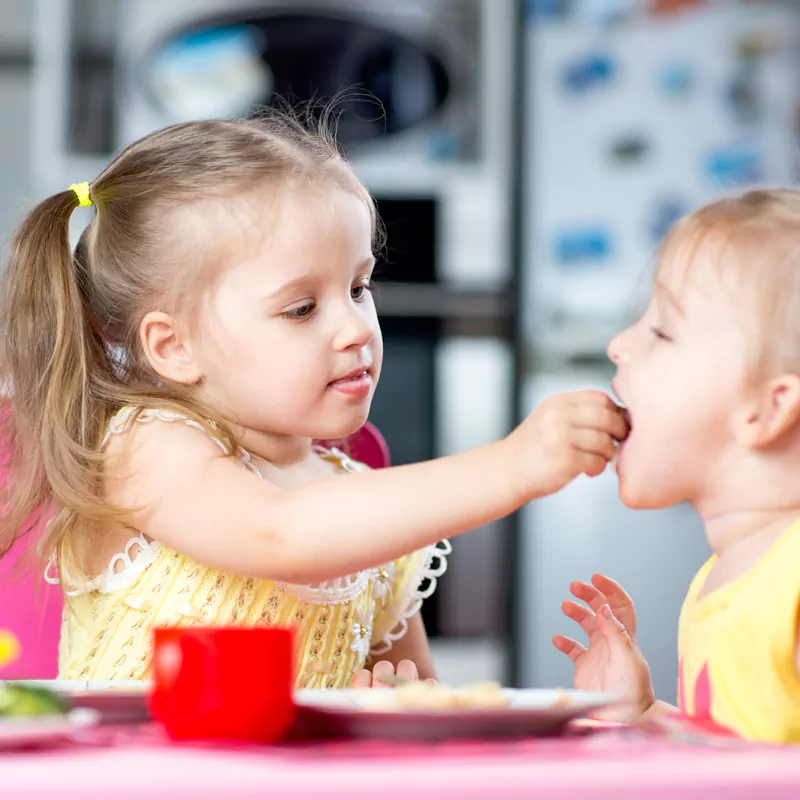
The best way to encourage your child to start sharing is to model it yourself. Children learn by watching the behaviour of those around them, so if they see you sharing, they’re more likely to do the same. Offer to share a snack or a toy with your child or with someone else in front of your child, and explain why sharing is important.
You can also set up situations where sharing is expected and rewarded. For example, you might have a playdate and ask each child to bring a toy to share with the group. Or you could encourage your child to share with a sibling or friend by setting up a reward system, such as giving them a sticker or a small treat when they share without being prompted.
It is important to remember that sharing is a skill that takes time to develop. Be patient with your child and don’t get frustrated if she is not always willing to share. Instead, continue to model and encourage sharing in a positive way, and celebrate the successes along the way.
Encourage cooperation skills
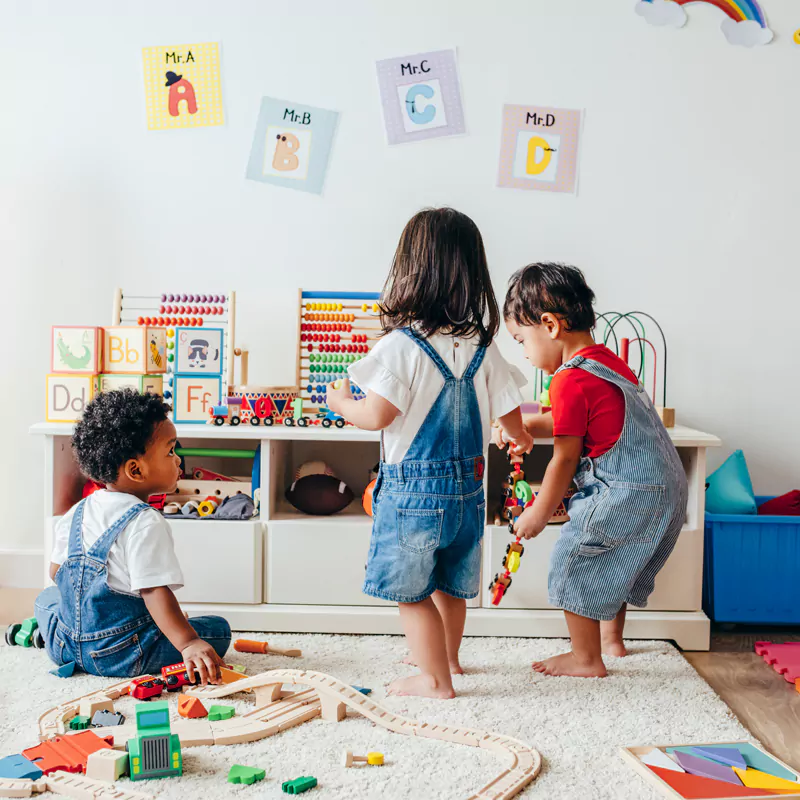
Collaborating and cooperating are skills that take practice and patience to develop. By providing opportunities for your child to work together with others and modelling cooperative behaviour, you can help her build the skills she needs to succeed in school, work, and relationships.
Children learn by watching and imitating adults, so make sure you model cooperative behaviour in your own interactions with others. You can start by creating opportunities for collaborating and cooperating through play such as when building with blocks, playing board games, or working on art projects.
Collaborating and cooperating is not an easy task. So whenever conflicts arise, convert this into an opportunity to teach problem-solving skills. Help your child learn to negotiate and find solutions that work for everyone involved. Use this as a chance to encourage the understanding of what empathy is. This will help your child understand and appreciate the perspectives and feelings of others, and help her develop better and deeper relationships.
Learning to be a good sport and celebrating others’ success is a crucial part of collaborating and cooperating. As these activities teach children to put their own egos aside and work towards a common goal. This skill is not only important in childhood but also in adult life, whether it’s in the workplace or in personal relationships.
Collaborating and cooperating skills are a great opportunity for children to develop their leadership skills and take charge of a project or task. At the same time, it’s equally important for children to learn to follow instructions and work effectively as team members. This helps them understand their strengths and weaknesses and how they can contribute to a group’s success.
Collaborating and cooperating provide children with valuable life skills that they can carry with them into adulthood. It helps them develop empathy, communication skills, and the ability to work towards a common goal.
Teaching how to listen
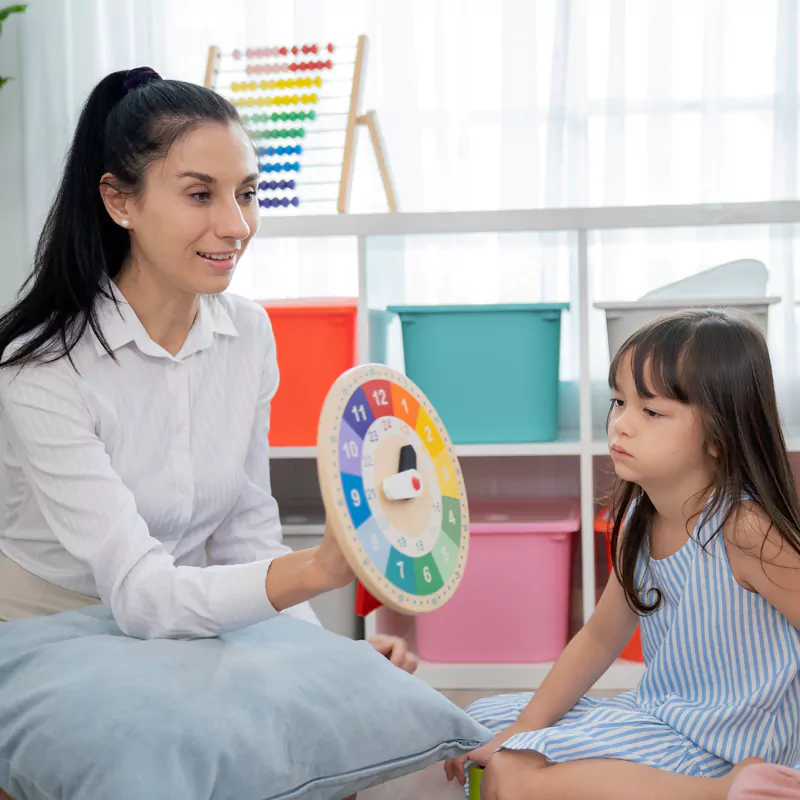
As children grow and develop, their ability to be attentive also helps improve listening. Active listening is an important skill that is needed throughout their lives, not just for language development, but also for academic learning, social interactions, and overall communication.
Active listening is a fundamental skill and an effective way to practice listening is to encourage your child to ask questions and actively participate in conversations. This helps your child understand that active listening is not just about staying quiet but also about engaging with others and showing interest in what they have to say.
You can also create active listening games and activities that are fun for your child. For example, you can play a game where you whisper a sentence to your child, and they have to repeat it back to you. This can help improve their listening skills by forcing them to focus and pay attention to what you’re saying.
Modelling good listening behaviour is crucial as well. As a parent, make sure you are demonstrating active listening when your child is talking to you. Put away your phone or other distractions and give your child your full attention. This not only models good behaviour for your child but also shows that her thoughts and feelings are important to you.
Be patient and understanding. Be supportive of the child’s efforts to improve and provide opportunities for learning and growth. However, just remember to make active listening activities fun and engaging, and to tailor them to the needs and interests of your child.
Learning to follow directions & instructions
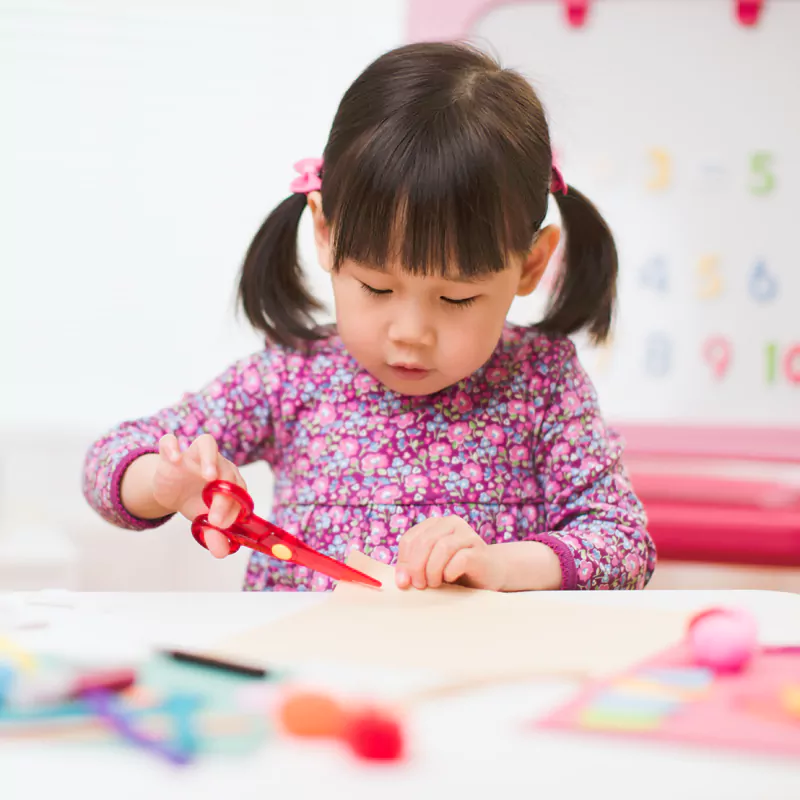
Positive reinforcement is a powerful tool for encouraging children who are following directions. By providing positive feedback to those who are following directions, parents can reinforce the behaviour and increase the likelihood of that behaviour happening again in the future.
Try to provide feedback as soon as possible after the desired behaviour occurs. While verbal praise is effective, consider using other forms of positive feedback such as stickers, high-fives, or a positive note to your child directly!
Bear in mind, be consistent in your praise, because the absence of positive feedback can result in decreased motivation to continue with good behaviour. Help your child to feel acknowledged and appreciated for her efforts, this will lead to increased motivation and engagement when following directions.
Following directions can be a fun and engaging way to get your child to understand instructions. It also helpful to reinforce following directions in a physical and visual way. This will make it easier for toddlers to remember them. For instance, repeating instructions back to your child partner is a helpful technique to ensure that your child understands and remembers important information.
This how you can leverage this technique. First, give your child a set of instructions or steps to follow. Next, pair your child up with a sibling or her peer friend. Then ask one child to repeat the instructions to her partner, while the other child listens. Once she has finished repeating the instructions, ask her partner to repeat the instructions back to you.
Having children repeat instructions back to a partner or you will help solidify their understanding and also check for comprehension. Start with a few simple steps and gradually increase the complexity as your child becomes more confident in her ability to remember and repeat back the instructions.
Using non-verbal hand signals is another great way to enhance the skills required for following directions. Thumbs up or thumbs down is a simple and effective way to get a quick assessment of whether your child understands the instruction. Ask her to give you a thumbs up if she understands, and a thumbs down if she doesn’t.
Twisting ears is a fun and creative way to get your child to turn on her listening skills. Ask her to twist her ears when you want her to focus on what you’re saying. If you notice that your child is not paying attention, you can discreetly put your hands behind your ears and make eye contact with her. This is a subtle way of reminding her to refocus and pay attention.
An effective way to practice respecting personal space is to model it yourself. Children learn a lot by observing the behaviour of adults. Make sure you model appropriate behaviour by giving others personal space and respecting their space.
Show your child how to stand at an appropriate distance when talking to others and how to ask for permission before hugging or touching someone. Explain to your child that everyone has different comfort levels when it comes to personal space and it’s important to be aware and respectful of this fact.
Praise your child when she is seen respecting personal space of others. Encourage your child to communicate her own personal boundaries as well. Teach her to say “no” if someone is invading her personal space or making her uncomfortable.
Let her also know that it’s OK to set boundaries and that she has the right to feel safe and comfortable in her own space. Talk to her about how it can make others feel uncomfortable or even scared if she invades into the personal space of others.
Create a safe environment for your child to talk by encouraging her to discuss about her feelings and experiences. When a child feels that she is heard and understood, she is more likely to empathize with others and respect their personal space.
Role-playing different scenarios will be of great help. Practising different scenarios with your child, such as how to greet a new acquaintance or how to ask someone for something by respecting personal space is a good step. It can help children develop this important social skill as it will serve them well throughout their lives.
Why making eye contact is important

Remember, every child is different, and it’s important to approach this with sensitivity and understanding. With patience and practice, children will learn to make meaningful eye contact whenever they are having a conversation.
As stated earlier, role-playing can be an effective way to help children practice and acquire new social skills such as making eye contact. For example, you can pretend to be her conversation partner and practice making eye contact with your child while you talk. Then switch roles and encourage your child to make eye contact with you while she is speaking to you.
You can also use visual cues to help your child remember to make eye contact. Place a sticker or draw an eye on your child’s hand to remind her to make eye contact during a conversation. Explain to her that making eye contact shows that she is interested in what the other person is saying and that it helps the other person feel heard and understood.
For some children, making eye contact can be overwhelming. You can help ease their sense of apprehension by having the child make eye contact for short periods of time and gradually increasing the duration of eye contact as she becomes more comfortable.
Expressing emotions in meaningful ways
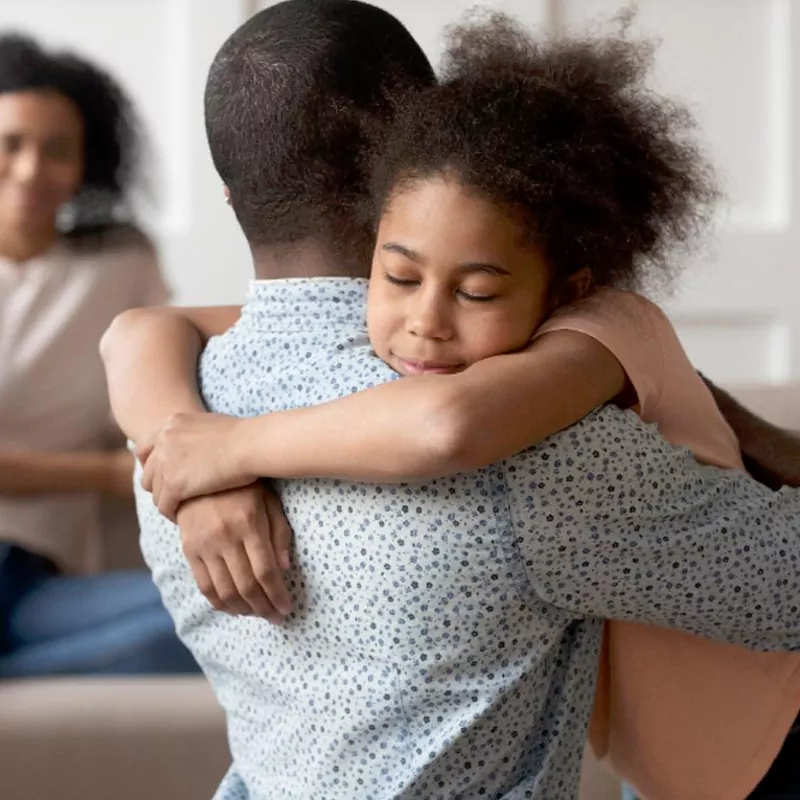
Teaching children to identify and express their emotions is a crucial life skill. Being able to put a name to what they are feeling helps children to develop a vocabulary for expressing emotions, which in turn can help them to communicate more effectively with others.
When a child learns how to process her emotions appropriately, she is able to recognize and understand them. This becomes the foundation to help her develop healthy ways for expressing emotions and to deal with them in a safe way. This skill will serve your child well throughout her life, as everyone experiences difficult emotions and has to deal with them at some point.
In addition, managing emotions effectively will help your child in communicating and articulating her thoughts clearly and expressing herself fearlessly. Parents can model positive communication habits and reinforce the importance of polite and respectful communication as well.
Remember, as children grow and mature, their communication needs and abilities change, so be ready to adapt and guide them accordingly. You’d need to focus on teaching your child more advanced communication skills, such as expressing empathy and apologizing when necessary.
Learning how to care

Teaching your child to be caring, compassionate, and skilled at conflict resolution can help her develop positive relationships and prepare her for successful adult life. Caring and compassion are important skills that a child needs to learn from an early age. It helps her develop positive relationships with others, including family members, peers, and even pets.
Teaching your child to be sympathetic towards others, even when she herself is in pain or feeling sad, can help your child understand the value of kindness and empathy. Similarly, teaching her to treat animals with care and respect can help instil in her a sense of responsibility and compassion towards other living beings.
Conflict management is another important aspect of social skills that children need to learn. By teaching them how to handle conflicts constructively, they will be better equipped to deal with disagreements and conflicts when they become adults. This includes knowing when to seek help from elders and peers, as well as learning how to resolve conflicts without resorting to violence or insults.
Every child is unique and it is because of this, every child will have her own pace in learning social skills. So it is best for parents to strive to distinguish the differing needs of their learners. But the most important aspect every child will need from a parent is reassurance that her home is a safe space, where she will be loved and valued no matter what.
Remember, teaching social skills is a process that takes time and patience. With consistent practice and positive reinforcement, your child will learn to be respectful and polite in any given situation. Be able to communicate effectively, solve problems, and build positive relationships in seamless ways.
So always aim to provide opportunities for your child to interact with peers, as well as remember to model positive social behaviour when you are with her or around her. Make learning social skills engaging and a fun thing to do. Use books, games, and other activities to help teach these critical skills in a light-hearted way.
Finally, an active collaboration between parents and teachers will be beneficial in promoting rapid social skill development as these are essential for children’s personal and academic success.
About My Gym
My Gym involves children in dynamic games, physical activity and movement that help in building neural networks in the brain. Customizing its enrichment programs and workshops makes it easier for children to acquire intellectual skills, navigate complex social situations, and nurture emotional development.
Please visit any of our centres to learn more about how My Gym supports “whole-child development” through bespoke physical activities. Choose a day when you will be relatively free and come over with your child in tow. Your child could be an infant (as young as 6 months), a toddler or a preschooler, age is not a bar for enrolling.
My Gym has perfected effective discipline techniques that nurture and strengthen confidence levels among children. My Gym has specially designed programs that also help lay a firm foundation for personal, academic and future growth by involving children in age-appropriate, structured and unstructured physical activities and developing thinking and problem-solving skills.
Please note: My Gym classrooms are thoroughly sanitized every day — the tables, the chairs, the children’s activity stations and everything else the child might touch is made safe and clean. Please wear a mask, wash your hands frequently, and practice social distancing.



